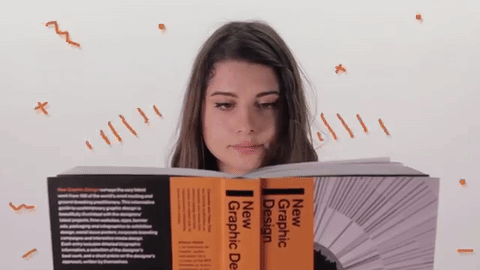How fast did you read this sentence? What if I told you that you could do it faster? Whether it’s mandatory school reading or just books and articles for fun, chances are you’re not reading as efficiently as possible. Imagine finishing your five assigned chapters with enough time to get a drink with your friends. With these tips, you can drastically improve your efficiency and master reading.
Eliminate Subvocalization

Subvocalization just means saying a word in your head after reading it. Subvocalizing adds another layer of symbols for your mind to process, thus slowing you down. You read the word, you say the word and then you listen to the word to derive meaning. When you intentionally eliminate the “saying the word” part, the word goes straight from page to brain. Unfortunately, we learn how to read by sounding out words, so subvocalization is pretty intuitive and difficult to completely drown out. At first, try chewing on a piece of gum to occupy your mouth, which will counteract your tendency to mouth out words. “Chewing gum and reading don’t seem to go hand in hand, but trust me they do. Not only does it help me eliminate subvocalization, but it also helps me keep a rhythm,” said UC Berkeley junior Rex Escobar.
Keep Your Eyes Trained

Read with your eyes. Keep them off that attractive student walking past you in the library and focused on the task at hand. Dragging your finger along the text at a consistent pace will help your eyes remained focused on the text. Also, following your finger at a fast pace will force you to eliminate subvocalization, because your mouth can’t keep up with the pace.
Get Rid of Internal Monologue

Think about this: At any given moment of the day, you’re probably thinking about something. We effectively talk to ourselves every day. When it comes to reading, however, your internal monologue distracts you from focusing on the text. Tell the little voice in your head to shut up. “I have a pretty pesky internal monologue. It sounds counterintuitive, but in order to read and think best you have to try and not think at all,” said UC Berkeley junior political science Max Seltzer. Think about you and the text, not your thoughts on whatever you watched on Netflix last night. Try counting to three over and over again to prevent your mind from thinking about anything else.
Don’t Focus on Individual Words

Going word by word slows you down. Instead, absorb sentences as whole. This seems difficult, but you’d be surprised how much slack your mind picks up by itself. Be careful, however, not to merely skim the text. Make sure you’re comprehending what you’re looking at, and if not, aim for absorbing fewer words at a time, then go up from there.
SQ3R

Reading quickly certainly has its benefits, but sacrificing comprehension renders it totally pointless. SQ3R stands for Survey, Question, Read, Recite and Review. When you survey, skim the reading and understand the basics of the content and key words. Then, come up with questions you may encounter the answers to after. Afterwards, read with all of the aforementioned tips. Recite key points and summarize ideas. And finally, review whatever you’ve read. “Sometimes I have difficulty focusing on what I read, so its really important for me outline what I’m reading before I dig in and then organize everything after I’m done,” said UC Berkeley junior business Charlotte Jamar.
Improved reading techniques have helped many students, myself included, more efficiently read. “I took a speed reading class in high school and it really changed my life. At first I’d chew gum and drag my finger and all that stuff, but now it comes naturally. I’ve trained my eyes to focus on sentences, I don’t say words in my head and I keep my mind quiet, but then again my mind is always pretty quiet, haha,” said UC Berkeley sophomore chemical engineering Ramiro Rojas.



















